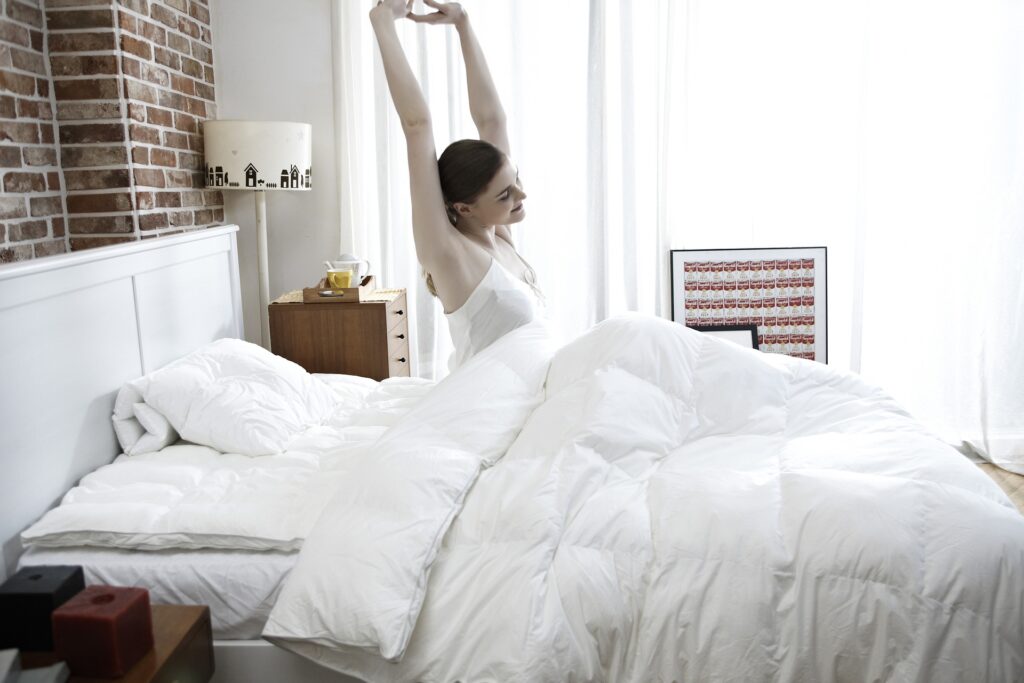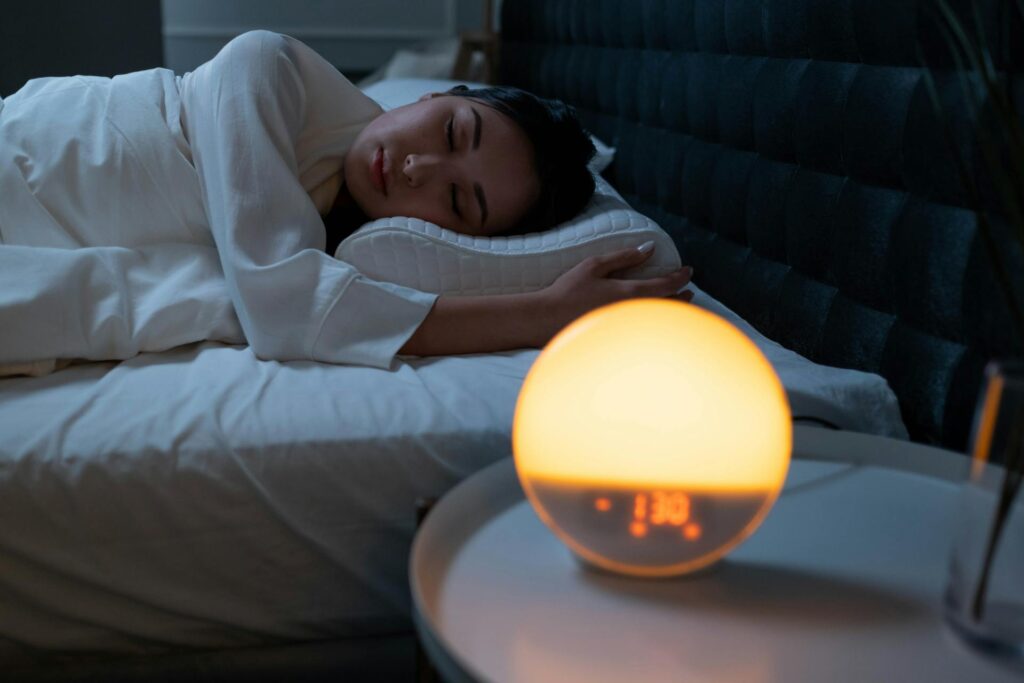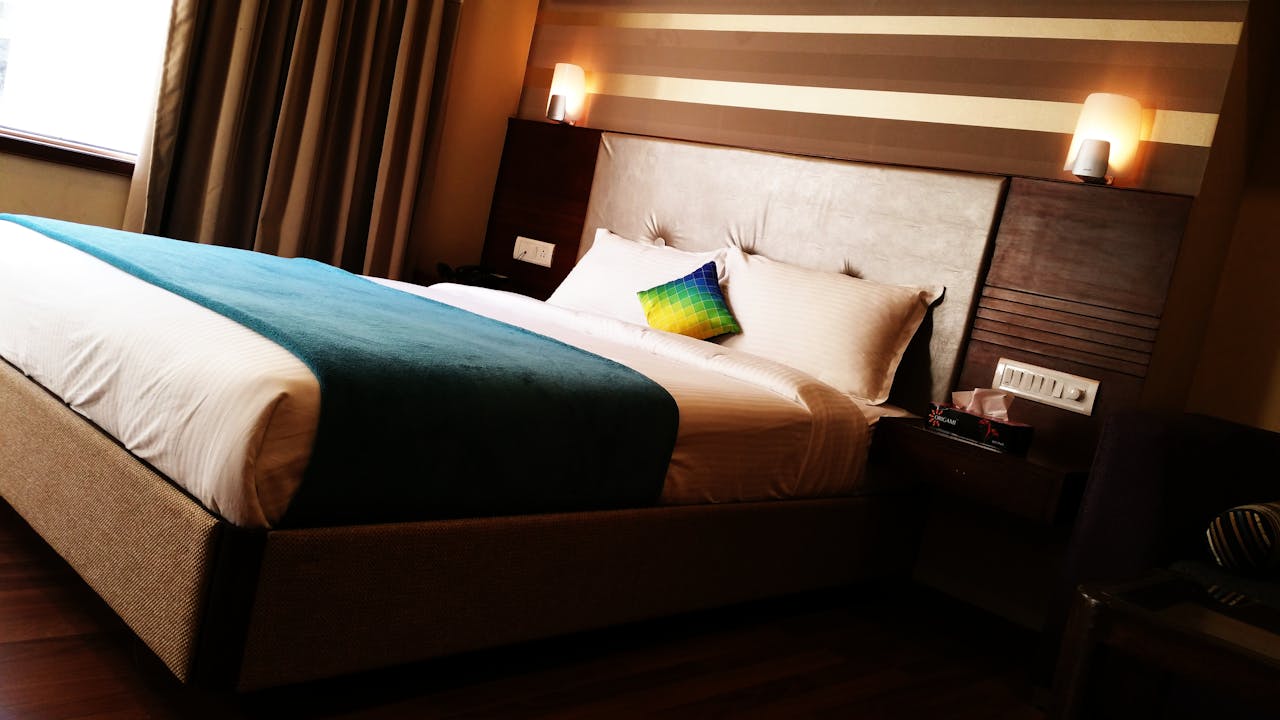How to improve sleep hygiene is a crucial question for those who prioritize their health and well-being. Sleep hygiene refers to the practices and environmental factors that are essential for good sleep quality. While many people focus on diet and exercise, the importance of sleep hygiene is often overlooked. Poor sleep hygiene can lead to a host of issues, including decreased productivity, mood disturbances, and long-term health problems. This article aims to shed light on practical and non-medical strategies to enhance your sleep hygiene. Unlike conventional advice, we delve into seldom-discussed aspects that can make a significant difference in your sleep quality. From creating a soothing bedtime routine to optimizing your sleep environment, these tips are designed to help you achieve restful, uninterrupted sleep. By incorporating these strategies, you can enhance your overall well-being and tackle each day with renewed energy. Let’s explore the proven tips for better sleep that can transform your nightly rest and improve your daily life.
Stay with us as we delve into these proven tips and discover how improving sleep hygiene can transform your sleep and overall health.
Table of Contents
1. Understanding Sleep Hygiene

1.1 What is Sleep Hygiene?
Sleep hygiene refers to the practices and habits that are essential for achieving quality sleep and full daytime alertness. According to the Sleep Foundation, it involves creating a sleep-conducive environment and following behaviors that promote consistent, uninterrupted sleep. Key elements include maintaining a regular sleep schedule, creating a comfortable and quiet sleep environment, and minimizing factors that can disrupt sleep.
1.2 Why is Sleep Hygiene Important?
Good sleep hygiene is vital for overall health and well-being. Quality sleep enhances physical health, boosts mood, and improves cognitive function. Conversely, poor sleep hygiene can lead to chronic sleep problems, negatively impacting your daily life and long-term health. By adopting good sleep hygiene practices, you can significantly improve the quality of your sleep and, consequently, your quality of life.
1.3 Individualized Sleep Hygiene Practices
Sleep hygiene practices can vary significantly from person to person. What works for one individual may not be effective for another. It’s important to experiment with different adjustments to find the best strategies for your unique needs. The Sleep Foundation article emphasizes the importance of personalizing your sleep environment, such as using heavy curtains or an eye mask to block out light, employing earplugs or white noise machines to drown out noise, and setting a cool yet comfortable room temperature.
While sleep hygiene is crucial for achieving quality sleep, it may not be sufficient for resolving severe sleep disorders. If you continue to experience sleep problems despite following good sleep hygiene practices, consider consulting a doctor for personalized advice.
By understanding and implementing effective sleep hygiene practices, you can pave the way for better sleep and improved health. In the next section, we will explore the key elements of good sleep hygiene in greater detail.
2. Key Elements of Good Sleep Hygiene
Improving sleep hygiene involves several key elements that, when consistently practiced, can lead to significantly better sleep. Here, we outline practical tips and strategies to help you establish good sleep hygiene.
2.1 Maintaining a Consistent Sleep Schedule

One of the most crucial aspects of good sleep hygiene is maintaining a regular sleep schedule. Going to bed and waking up at the same time every day helps regulate your body’s internal clock, making it easier to fall asleep and wake up naturally.
- Consistency: Aim to go to bed and wake up at the same time every day, even on weekends.
- Gradual Adjustments: If you need to change your sleep schedule, do so gradually, adjusting by 15-30 minutes each night.
2.2 Creating a Relaxing Bedtime Routine
A relaxing bedtime routine signals to your body that it’s time to wind down and prepare for sleep. Engaging in calming activities can help you transition from wakefulness to sleepiness.
- Reading: Choose a book or magazine that isn’t overly stimulating.
- Warm Bath: Taking a warm bath can help relax your muscles and lower your body temperature, promoting sleepiness.
- Relaxation Techniques: Practice deep breathing, meditation, or gentle yoga.
2.3 Optimizing Your Sleep Environment

Your sleep environment plays a significant role in your sleep quality. Creating a comfortable and quiet bedroom can make a big difference.
- Comfortable Bedding: Invest in a comfortable mattress and pillows.
- Light Control: Use heavy curtains or an eye mask to block out light.
- Noise Reduction: Drown out noise with earplugs or white noise machines.
- Temperature: Keep your bedroom cool yet comfortable, ideally between 60-67°F (15-19°C).
- Scents: Use calming scents like lavender to create a relaxing atmosphere.
2.4 Limiting Exposure to Screens and Blue Light
Exposure to screens and blue light before bed can interfere with your ability to fall asleep. Reducing screen time in the evening can help you sleep better.
- Screen-Free Hour: Avoid screens at least an hour before bed.
- Alternative Activities: Read a book, listen to music, or practice relaxation techniques.
2.5 Monitoring Diet and Exercise
What you eat and how you exercise can greatly impact your sleep quality. Certain foods and physical activities can either promote or hinder sleep.
- Avoid Stimulants: Limit caffeine and nicotine, especially in the afternoon and evening.
- Moderate Alcohol: While alcohol may help you fall asleep, it can disrupt your sleep later in the night.
- Exercise Regularly: Engage in regular physical activity, but avoid vigorous exercise close to bedtime.
By incorporating these key elements into your daily routine, you can establish good sleep hygiene and enjoy more restful, rejuvenating sleep. Next, we’ll explore additional tips to further enhance your sleep hygiene practices.
3. Additional Tips for Improving Sleep Hygiene
Beyond the fundamental practices of good sleep hygiene, there are additional strategies that can further enhance your sleep quality. These tips are often overlooked but can make a significant difference in achieving restful sleep.
3.1 Managing Stress and Anxiety

Stress and anxiety are common barriers to good sleep. Learning how to manage these can improve your ability to fall asleep and stay asleep.
- Mindfulness Meditation: Practicing mindfulness can reduce stress and promote relaxation. Try dedicating a few minutes each day to mindful breathing or guided meditation.
- Journaling: Writing down your thoughts before bed can help clear your mind and reduce anxiety. Focus on positive events of the day or plan for the following day to ease worries.
- Progressive Muscle Relaxation: This technique involves tensing and then slowly relaxing each muscle group, promoting physical relaxation.
3.2 Avoiding Stimulants and Alcohol
While many people know to avoid caffeine before bed, the timing and type of other stimulants and substances can also impact sleep.
- Caffeine Cut-off: Avoid caffeine at least six hours before bedtime. Remember that chocolate and some medications also contain caffeine.
- Nicotine: As a stimulant, nicotine can disrupt sleep. Avoid smoking or using nicotine products, especially in the evening.
- Alcohol: Although alcohol can make you feel sleepy, it interferes with deep sleep stages. Limit alcohol consumption, particularly close to bedtime.
3.3 Keeping Naps Short and Early

Napping can be beneficial, but it can also interfere with nighttime sleep if not done correctly.
- Power Naps: Limit naps to 20-30 minutes. This helps avoid grogginess and doesn’t interfere with your nighttime sleep.
- Early Naps: Nap earlier in the day, preferably before 3 PM, to prevent difficulty falling asleep at night.
3.4 Staying Hydrated Without Overdrinking
Hydration is essential, but drinking too much fluid before bed can cause frequent trips to the bathroom, disrupting sleep.
- Balanced Hydration: Drink plenty of water throughout the day but reduce intake an hour before bed.
- Bathroom Routine: Make a habit of using the bathroom right before going to bed to minimize nighttime awakenings.
Incorporating these additional tips into your routine can enhance your sleep hygiene practices, leading to more restful and uninterrupted sleep. These often overlooked strategies can provide the extra boost needed for optimal sleep quality.
4 Conclusion
Improving sleep hygiene is a fundamental step toward achieving restful and rejuvenating sleep. By adopting practical and effective strategies, you can significantly enhance your sleep quality and overall well-being. As highlighted in this article, focusing on maintaining a consistent sleep schedule, creating a relaxing bedtime routine, optimizing your sleep environment, and managing stress and anxiety can make a substantial difference in how well you sleep.
The importance of sleep hygiene cannot be overstated. According to the Sleep Foundation, “Creating a sleep-conducive environment and following behaviors that promote consistent, uninterrupted sleep are key to achieving quality sleep.” By personalizing your sleep hygiene practices to fit your unique needs, you can find the most effective ways to improve your sleep.
While good sleep hygiene is essential, it’s important to recognize that it might not be enough to resolve severe sleep disorders. If you continue to experience sleep problems despite implementing these tips, consider consulting a healthcare professional for personalized advice.

Summary of Key Points:
- Maintain a Consistent Sleep Schedule: Go to bed and wake up at the same time every day.
- Create a Relaxing Bedtime Routine: Engage in calming activities before bed to signal your body it’s time to wind down.
- Optimize Your Sleep Environment: Ensure your bedroom is dark, quiet, and cool, with comfortable bedding.
- Manage Stress and Anxiety: Practice mindfulness, journaling, or progressive muscle relaxation to reduce stress.
- Avoid Stimulants and Alcohol: Limit caffeine, nicotine, and alcohol consumption, especially in the evening.
- Keep Naps Short and Early: Limit naps to 20-30 minutes and take them before 3 PM.
- Stay Hydrated Without Overdrinking: Drink plenty of water during the day but reduce intake before bed.
By following these guidelines and experimenting with what works best for you, you can improve your sleep hygiene and enjoy the benefits of better sleep. Start implementing these tips today and take the first step towards a healthier, more rested you.





